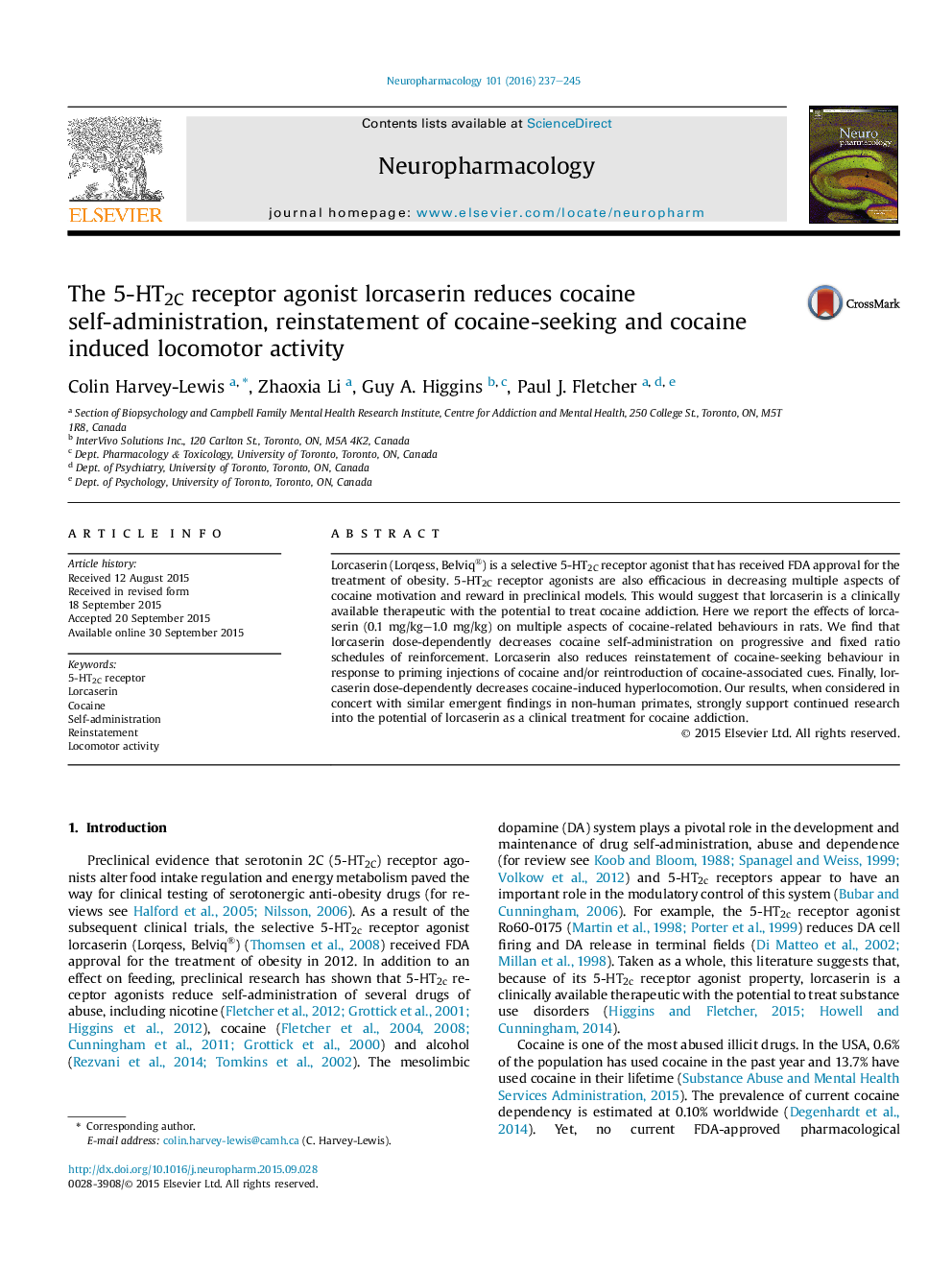| Article ID | Journal | Published Year | Pages | File Type |
|---|---|---|---|---|
| 2493115 | Neuropharmacology | 2016 | 9 Pages |
•Lorcaserin, a 5-HT2C receptor agonist, reduced cocaine self-administration in rats.•Lorcaserin reduced reinstatement of cocaine seeking.•Lorcaserin blocked cocaine induced hyperactivity.•Effects of lorcaserin were blocked by the 5-HT2C receptor antagonist SB242084.
Lorcaserin (Lorqess, Belviq®) is a selective 5-HT2C receptor agonist that has received FDA approval for the treatment of obesity. 5-HT2C receptor agonists are also efficacious in decreasing multiple aspects of cocaine motivation and reward in preclinical models. This would suggest that lorcaserin is a clinically available therapeutic with the potential to treat cocaine addiction. Here we report the effects of lorcaserin (0.1 mg/kg–1.0 mg/kg) on multiple aspects of cocaine-related behaviours in rats. We find that lorcaserin dose-dependently decreases cocaine self-administration on progressive and fixed ratio schedules of reinforcement. Lorcaserin also reduces reinstatement of cocaine-seeking behaviour in response to priming injections of cocaine and/or reintroduction of cocaine-associated cues. Finally, lorcaserin dose-dependently decreases cocaine-induced hyperlocomotion. Our results, when considered in concert with similar emergent findings in non-human primates, strongly support continued research into the potential of lorcaserin as a clinical treatment for cocaine addiction.
